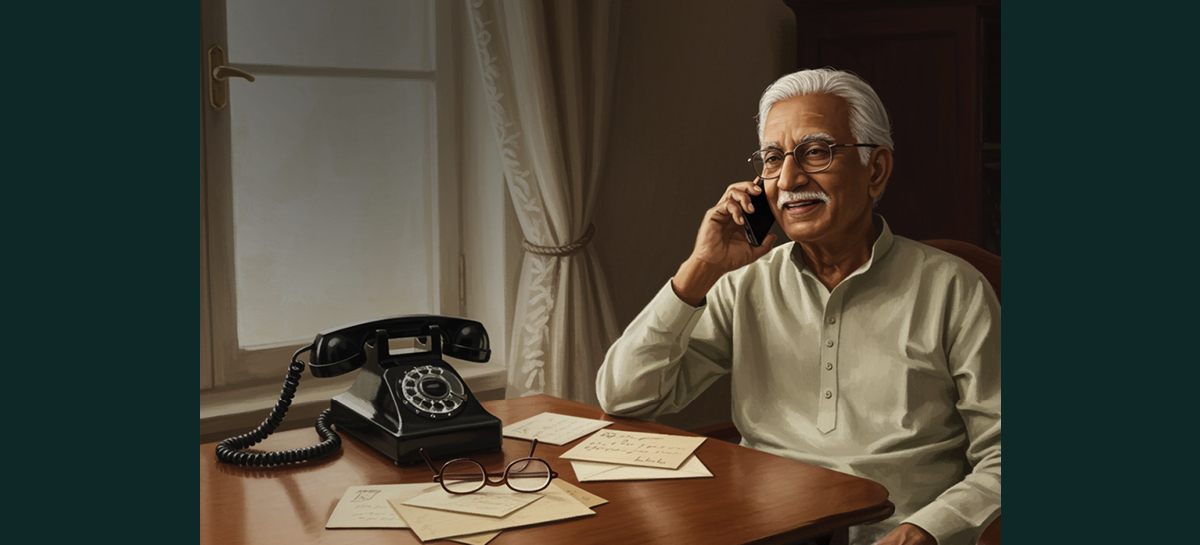On National Technology Day, our member Mr N. Sengupta reflected on the remarkable transformation technology has brought to our lives. He weighs the gains and the losses of our fast-changing world.
Technology has become an inseparable part of our lives. Its rapid strides have rendered an entire way of life obsolete and ushered in a new one. While I welcome this change, I sometimes feel we’ve grown too dependent on it.
Take smartphones, for instance—they’ve become our world. If I misplace mine, it feels like part of my life is unravelling elsewhere. In the days of the landline, there wasn’t as much anxiety. Few homes had telephones in the 1980s. I had one at my office desk, but we installed a landline at home only in 1993. Until then, most of our correspondence happened through postcards and inland letters. It was a habit of mine to check the letterbox whenever I entered or left the house. We don’t even have letterboxes anymore!
There was a sweet anticipation in waiting for letters—to wait for the postman, to open an envelope or inland letter, and read the contents inside. Every sender’s handwriting had a unique style, almost like a voice. One glance at the handwriting, and we knew who it was from. That personal touch deepened the connection in a way today’s messages rarely do. Sure, we now wake up to ‘Good Morning’ messages on WhatsApp, but they lack the intimacy of something painstakingly written by hand.
I remember smartphones entering our lives in the early 2000s. Their arrival changed everything. I first bought one for my daughter when she was in university—and it was she who taught me how to use mine.
Smartphones have certainly made life more convenient, but they’ve also made us less self-reliant. Thanks to Google Maps, we no longer get lost—but there was a time we could navigate an entire city by memory. Technology has changed even our relationship with the cities we live in.
Banking, too, has been transformed. I no longer have a personal relationship with my banker! Still, I understand that technology has made their jobs easier. Gone are the days of manually filling ledger books, a tiring task by any standard. As customers, we’ve benefited too—ATMs have replaced long queues at the teller’s window.
As much as I miss aspects of the old world, I know it’s fruitless to cling to the past. The internet has permanently changed our lives, and I don’t expect to receive handwritten letters anytime soon! But I believe it’s important for us to walk in step with these changes—and make the most of them.
(As narrated to Support Elders by our member)


